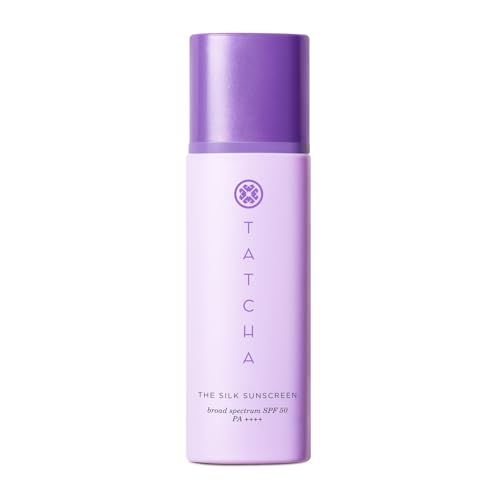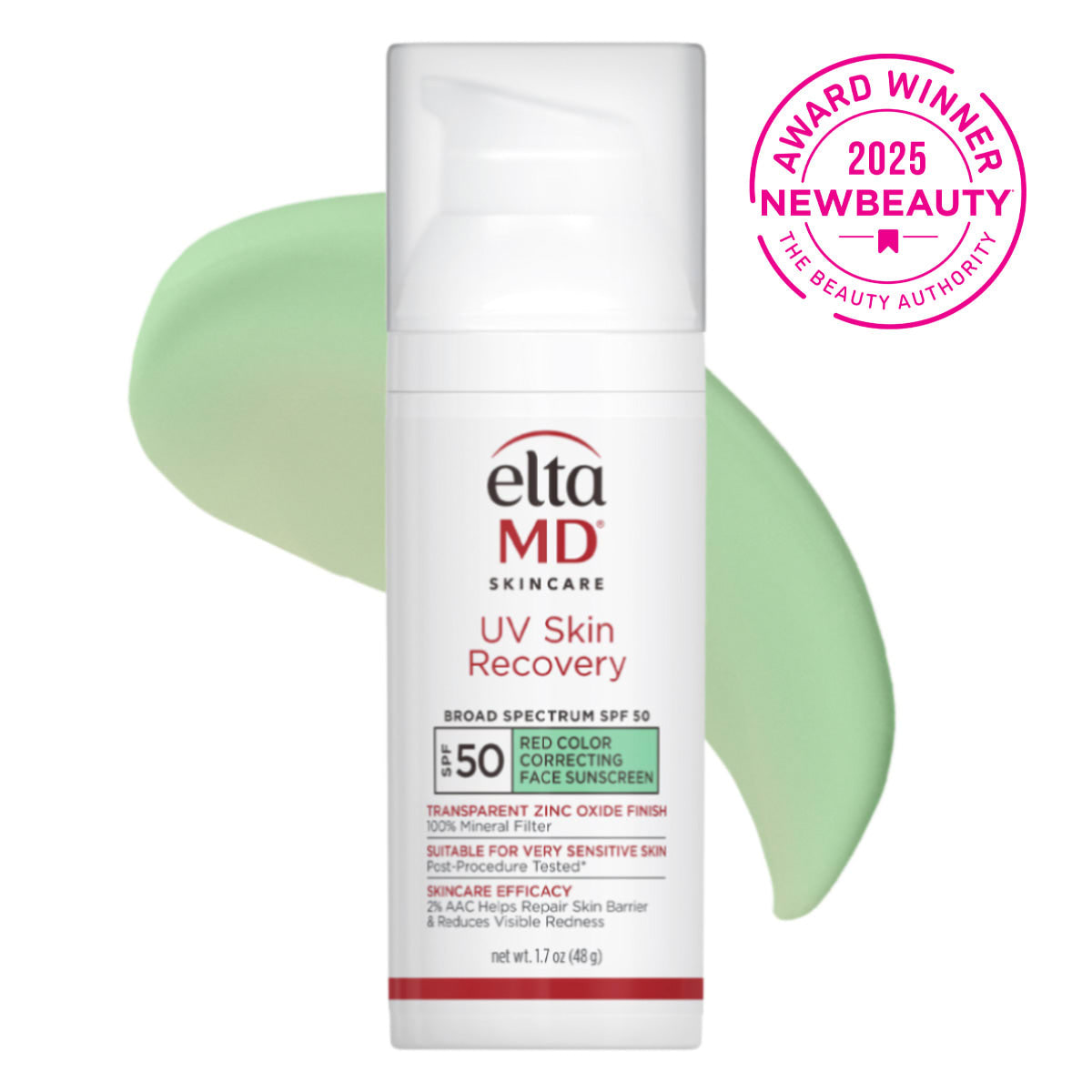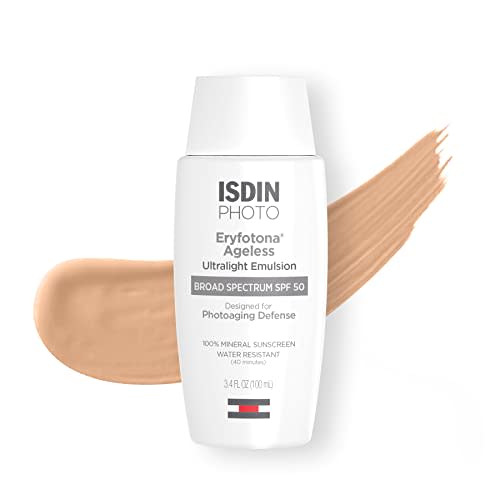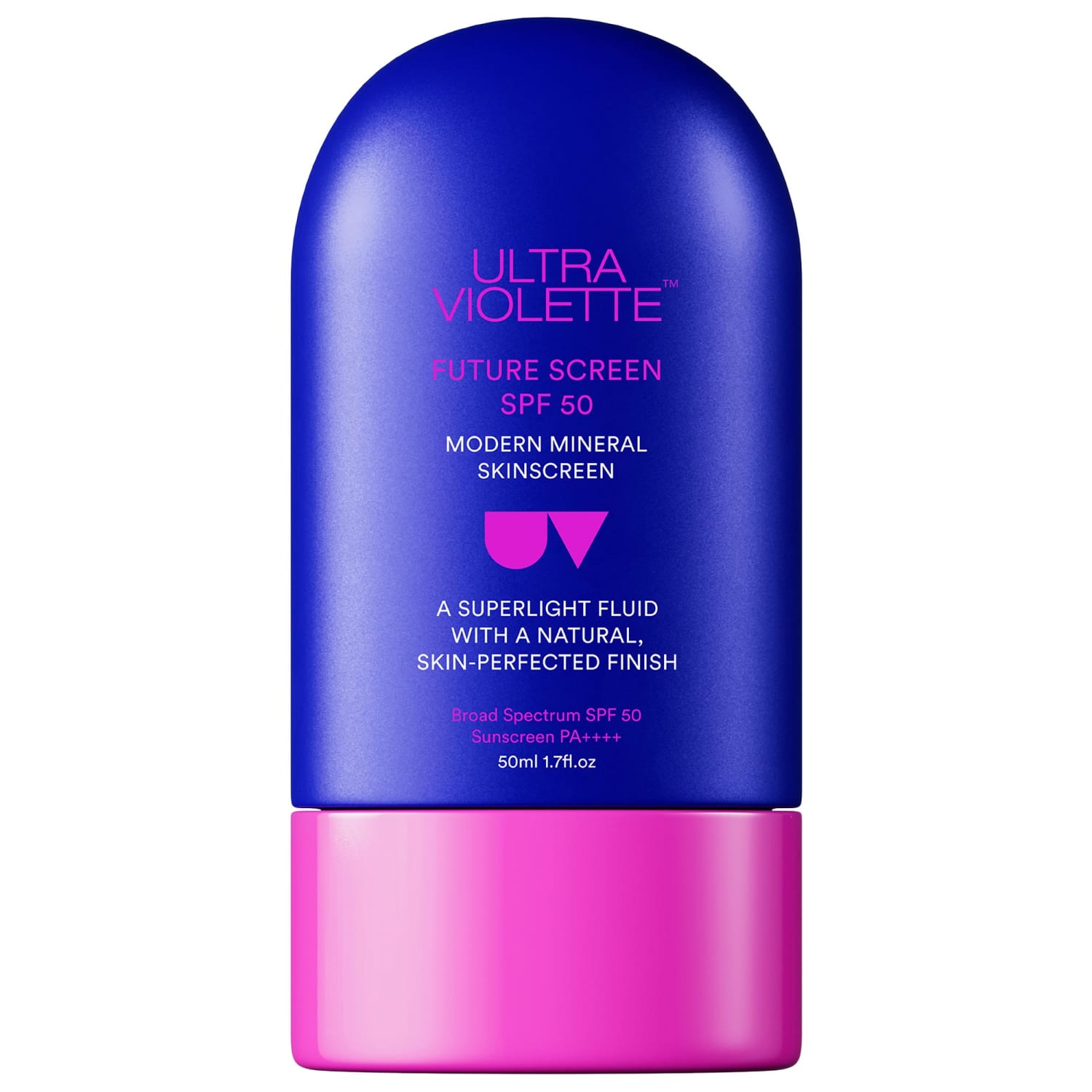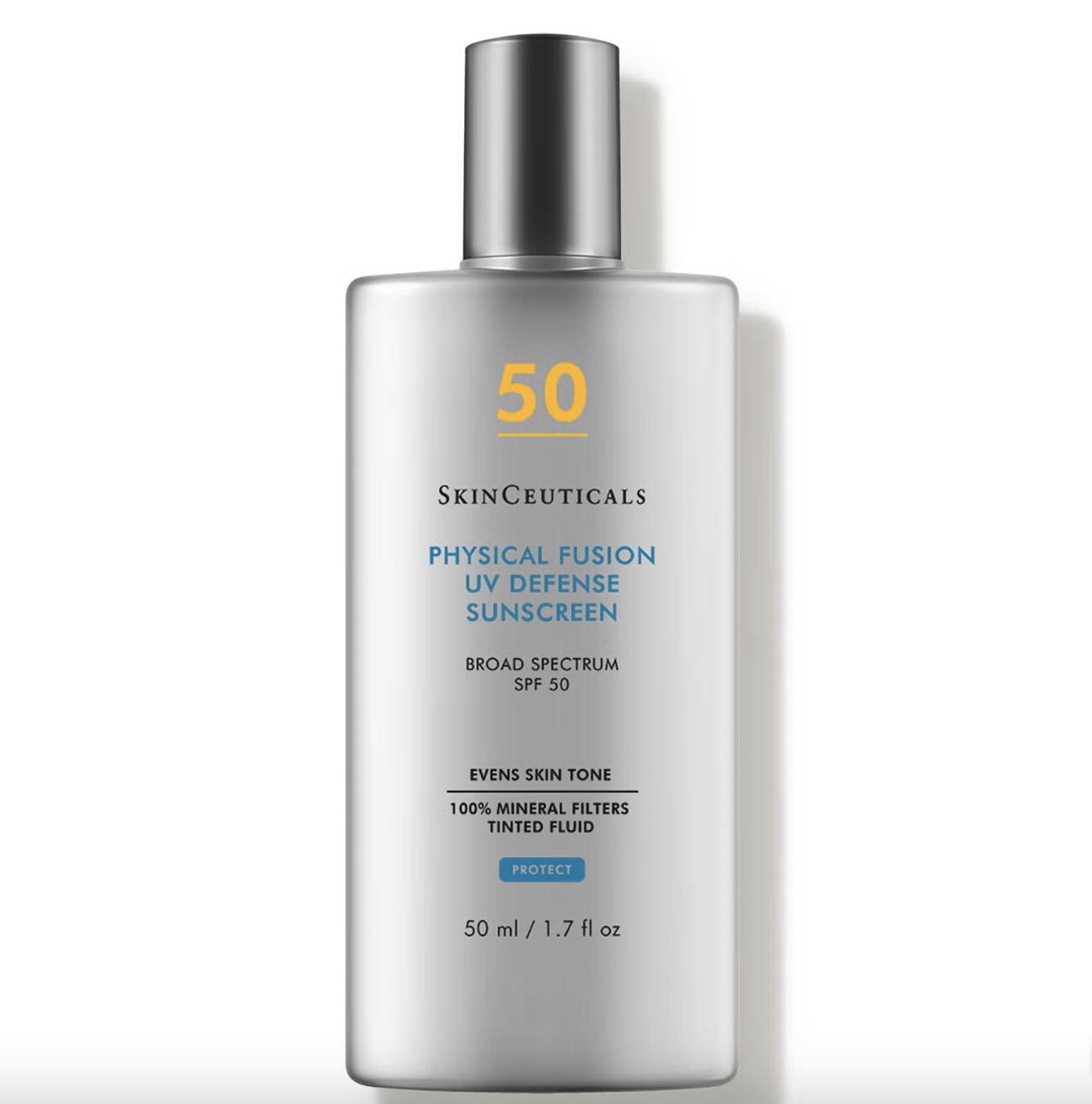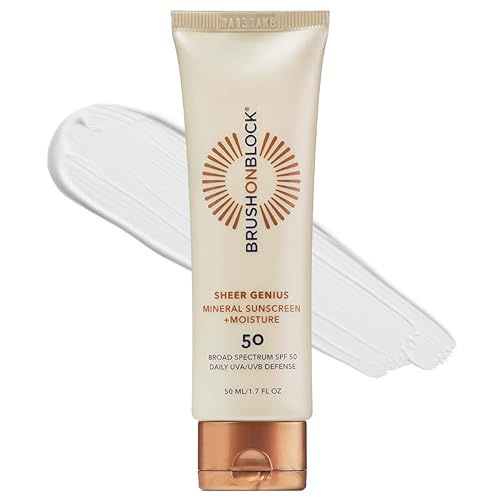Not all sunscreens are created equal, and while most skin care experts say wearing SPF every day is essential to reducing the potential for sunburns and skin cancer (as well as wrinkles and other signs of aging), some dermatologists favor mineral sunscreen over chemical sunscreen. The reason: Unlike chemical sunscreens, mineral sunscreens are naturally broad-spectrum, meaning they offer protection against UVA and UVB rays as a baseline, no matter which brand you buy, says Dr. Anthony Rossi, a board-certified dermatologist at Memorial Sloan Kettering Cancer Center.
We spoke to dermatologists about the benefits of mineral sunscreen and how to shop for one. We also narrowed down their recommendations for the best mineral sunscreens to buy, as well as options NBC Select editors use and love.
Selected.
Show 4 More
Show Less
What is the difference between mineral and chemical sunscreen?
While mineral and chemical sunscreens are both proven to be “safe and effective in reducing short- and long-term sun damage and skin cancer,” the difference is how they protect you, says Dr. Deborah Spey, a board-certified dermatologist at Schweiger Dermatology Group. Below are some more details about the difference between mineral and chemical sunscreens:
- Mineral sunscreen, sometimes referred to as a physical blocker or physical sunscreen, contains either zinc oxide or titanium dioxide (and sometimes both). The sunscreen sits on top of the skin and physically shields it from harmful UV rays, says Dr. Hadley King, a board-certified dermatologist. Depending on the concentration of the zinc oxide as well as the particle size of the mineral, some of these sunscreens can leave behind a white cast on your skin, says Rossi.
- Chemical sunscreen typically contains a combination of as many as six chemicals — oxybenzone, avobenzone, octisalate, octocrylene and homosalate — that penetrate the skin to absorb UV rays like a sponge, according to our experts.
- Mineral-based sunscreens, like Blue Lizard Sport Mineral-Based Sunscreen Lotion, are a third type on the market. Mineral-based sunscreens contain both mineral and chemical active ingredients.
How we picked the best mineral sunscreens
You can find mineral sunscreens in lotion, oil, stick, spray and brush form — all contain zinc oxide and/or titanium dioxide that shield skin from harmful UVA and UVB rays. But that’s where the similarity ends. Depending on the brand you choose, some can be drying or leave a white cast on your skin, while others may clog your pores because they contain mineral oil or petroleum-based products, according to the dermatologists we spoke to.
Finding a mineral sunscreen without a white cast can be especially challenging for those with darker skin. We can’t guarantee every pick won’t leave a white cast, but we’ve included reviewer comments and some of our staff’s favorite melanin-friendly options to help narrow your choices. The experts we spoke to recommend looking for the following features, which we kept in mind when compiling this list:
- SPF rating: Look for a sunscreen with at least SPF 30 protection, according to our experts and the American Academy of Dermatology.
- Active ingredients: Look for zinc oxide and/or titanium dioxide, the only active ingredients in mineral sunscreens.
- Water resistance: Not all sunscreens are water-resistant. If that's a priority for you, look for a sunscreen that's water- and sweat-resistant for at least 40 minutes, experts say.
Want more from NBC Select? Sign up for our newsletter, The Selection, and shop smarter.
The best mineral sunscreens in 2025
Below, we rounded up dermatologist-recommended mineral sunscreens, plus NBC Select staff favorites from our extensive skin care coverage. We also included some highly rated options that align with our experts’ guidance.
Best overall
This Herbivore sunscreen earned the No. 3 spot (and the best mineral sunscreen) on our list of 100 best SPFs. NBC Select associate SEO reporter Ashley Morris, who is initially skeptical of any sunscreen’s “universal tint” claim, was pleasantly surprised after wearing this Herbivore one. “It has a pale, almost orange color that I was sure would make my darker-toned, oilier skin look pale and ashy, but I was wrong,” she says, “Although the formula takes a second to absorb, it’s totally worth the wait.” The sunscreen is compatible with all skin types, and has vitamin C to help even out skin tone and prebiotics to improve your skin’s moisture barrier, according to the brand. Morris also loves that she can wear this sunscreen all day without the threat of greasy residue on her already oily skin. “Even when I can feel my skin getting oilier, the sunscreen stays intact — the most I’ll ever get is a soft, slightly sweaty glow, and it also works great under my makeup,” she says.
Best for darker skin tones
This Tatcha sunscreen, another favorite of Morris’, who says it doesn’t leave a white cast, in her experience. It has hyaluronic acid and niacinamide to help your skin retain moisture, and silk extract to improve texture. “I love that the formula is so lightweight, it basically melts into my skin,” says Morris. However, she recommends this as an everyday option for those with normal to dry skin, while those with oilier skin may want to use it more occasionally. “I like to use this on days where I know I won’t be sweating or doing too much activity, because it does get slightly greasy after a few hours,” says Morris.
Best for color correcting
This EltaMD sunscreen is a favorite of NBC Select commerce editor Lindsay Schneider, who doesn’t tend to wear a lot of makeup on the day to day. “I have naturally rosy cheeks, but don’t like to wear foundation or a lot of concealer, and I found the light green tint to be quite effective in concealing that redness,” she says. Schneider compares the color to Dr. Jart’s Cicapair Tiger Grass Treatment, another color-correcting product in her skin care rotation.
Best for mature skin
Isdin’s sunscreen products are some of Spey’s favorites because they have an ingredient called DNA Repairsomes, which is an enzyme derived from plankton that repairs existing sun damage that is in the cells of your DNA, she says. The SPF also has peptides and antioxidants to minimize signs of aging, like fine lines and wrinkles, says Spey. Plus, there’s vitamin E to moisturize the skin, according to the brand. However, reviewers with lighter skin tones say the sunscreen’s tint leaves them slightly orange.
Best for blue-light protection
This mineral sunscreen has antioxidants to help protect the skin from pollution, infrared radiation and blue light, says King, who wears it daily because it’s lightweight, hydrating and doesn’t leave behind any white residue, in her experience. It also has a hyaluronic acid booster for hydration and works for all skin types and tones, according to the brand.
Best tinted
NBC Select updates editor Mili Godio gravitates towards this sunscreen on days where she wants a slight tint without having to apply a full face of makeup. “It’s one of the lightest, most blendable formulas I tried; my skin absorbs it so easily and quickly and I don’t have to spend several minutes rubbing it in like so many others I tested,” she says. Godio loves that the shade is a bit on the darker side, which gives her skin a glowy, tanned look. Ultra Violette’s Future Screen also soothes and repairs sensitive, acne-prone skin with squalane and vitamin E, according to the brand.
Best non-greasy
NBC Select reporter Zoe Malin says that this formula absorbs quickly into the skin and works great with layering makeup overtop. The sunscreen has ingredients that specifically target fine lines, wrinkles, dark spots and dryness, according to the brand. “I never look greasy or oily while wearing it, and I practically forget I have it on,” says Malin.
Best hydrating
This sunscreen’s lightweight formula goes on sheer and is hydrating enough to replace your daily moisturizer, according to the brand. It also protects the skin from free radicals and blue light and helps improve the appearance of fine lines thanks to ingredients like aloe, jojoba, apple extract, squalene and glycerin, according to Brush On Block. King suggests following it up throughout the day with the brand’s mineral powder sunscreen, which you can apply right over your makeup and leaves you with a matte finish, she says.
Active ingredients: zinc oxide | SPF: 50 | Hydrating: yes | Sheer: yes | Water resistance: 80 minutes
Best lightweight
This tinted mineral sunscreen is lightweight and absorbs quickly into the skin, says Spey. The tint prevents it from leaving a white cast and is made of antioxidant-rich plankton, which Spey says can enhance the skin’s natural defenses against the sun. Plus, it’s noncomedogenic, meaning it’s free of any oils that can clog pores or aggravate acne, according to the brand.
Best for sensitive skin
Innisfree’s color-correcting mineral sunscreen has hyaluronic acid and cica to soothe sensitive skin, according to the brand. NBC Select senior social media editor Rosalie Sparaco says the sunscreen’s green tint balanced her skin tone nicely, especially since she doesn’t wear a lot of makeup on the day to day. “I didn’t notice a smell, it didn’t feel heavy or make my skin look shiny and best of all, it didn’t irritate my skin, which is slightly sensitive,” says Sparaco.
Best for acne-prone skin
This mineral sunscreen is a great option for those with acne-prone, sensitive skin because it’s oil-free, says King. It protects against blue light, pollution and infrared radiation, and you can use it as a primer under makeup or in place of a light foundation, according to the brand. This sunscreen also has niacinamide to help maintain and improve your skin’s moisture barrier and help with inflammation, says Rossi.
Best for dry skin
This moisturizing mineral sunscreen is best suited for normal to dry skin and has ingredients like glycerin, green tea extract, vitamin C and peptides to hydrate and improve the appearance of fine lines and wrinkles, according to the brand. Additionally, the iron oxides found in this formula offer a “self‐adjusting universal tint” that should match most skin tones, according to the brand (although some reviewers say it leaves behind a slight white sheen). The sunscreen has a 4.5-star average rating from over 500 reviews on Amazon.
Best fragrance-free
Blue Lizard’s cream lotion is one of our favorite reef-safe sunscreens because it’s free of skin-irritating fragrances and parabens, which dermatologists say is helpful for those with sensitive skin. It has hyaluronic acid for hydration, along with antioxidants like green tea extract and caffeine to improve your skin’s texture and appearance, according to the brand. Blue Lizard products come with patented bottles and caps that turn blue in sunlight to remind you to put on sunscreen, according to the brand. However, reviewers say the product may leave a white cast on darker skin.
Best for improving texture
Like many other options on our list, this mineral sunscreen has niacinamide, which helps to improve your skin tone and texture, according to the brand. It also protects against infrared radiation, which can lead to hyperpigmentation, says King. The brand also makes a stick version, which is convenient if you’re exercising outdoors since it is less likely to run into your eyes, she says. With a lightweight and sheer formula, this sunscreen works for all skin types and tones, too, according to the brand.
Best for oily skin
This lavender-scented, non-greasy sunscreen blends in easily and doesn’t leave behind a white cast, says King. It’s noncomedogenic and has antioxidants like blueberry, acai and green tea extracts to help brighten the skin and prevent fine lines, wrinkles and dark spots, as well as Rosa canina fruit oil to help control excess oil and minimize the appearance of pores, according to the brand.
Best primer
Cotz’s Prime and Protect SPF is a dual purpose sunscreen that also acts as a primer and doesn’t leave a white cast, according to NBC Select video producer Josh Rios. “It blended so quickly and evenly that I forgot that I put it on. So I just did it again. It’s a mineral sunscreen I actually want to recommend,” he says. It leaves a sheer tint and has a matte finish, according to the brand.
How to shop for a mineral sunscreen
When shopping for a mineral sunscreen, you should first know your skin type, according to our experts. Below are some additional factors to consider when shopping:
- Be sure the label says “mineral sunscreen” and not “mineral-based,” which means it’s a combination of mineral and chemical ingredients.
- Opt for a skin protection factor (SPF) of at least 30, which protects against 97% of the sun’s damaging rays, according to the Skin Cancer Foundation.
- Make sure that the only active ingredients are zinc oxide and/or titanium dioxide, which are two naturally occurring minerals that sit on top of your skin to create a barrier to deflect the sun’s UVA and UVB rays.
- Opt for products with a minimal amount of parabens such as methylparaben and propylparaben, which can cause irritation and allergies.
- Look for “noncomedogenic” on the label, especially if you’re acne-prone. Noncomedogenic formulas have no mineral oil or petroleum-containing products that tend to clog or block pores.
- Look for moisturizing ingredients, such as vitamin E, vitamin C, olive oil, aloe vera and hyaluronic acid to keep your skin hydrated.
- Opt for a sunscreen that has a water resistance of at least 40 minutes if you will be working outdoors or plan to swim.
- Look for a sheer formula that won’t leave a white chalky residue on your skin.
Frequently asked questions
What are the damaging effects of UVB and UVA rays?
- UVB rays are the main cause of sunburns and are thought to cause most skin cancers, according to Rossi. These rays vary in intensity depending on the weather and time of day and primarily damage the skin’s outermost layers, he says. People are exposed to the most harmful UVB radiation between 10 a.m. and 2 p.m., even on a cloudy day, says Rossi.
- UVA rays penetrate much deeper into the skin and cause premature aging and wrinkles, says Rossi. Unlike UVB rays, UVA rays are equally intense all day long, he says.
What is the best way to apply mineral sunscreen?
Although the Skin Cancer Foundation recommends applying sunscreen 30 minutes before sun exposure (no matter the type of sunscreen) and reapplying approximately every two hours, Spey says that mineral sunscreens “offer immediate protection, so there is no need to apply them in advance and wait for them to be absorbed.”
While mineral sunscreens can rub-, sweat- and/or rinse-off, they last longer in direct sunlight, meaning they require less frequent reapplication compared to chemical sunscreens, according to Spey. She also suggests pairing a broad-spectrum sunscreen with protective clothing, hats and sunglasses.
Meet our experts
At NBC Select, we work with experts who have specialized knowledge and authority based on relevant training and/or experience. We also take steps to ensure all expert advice and recommendations are made independently and without undisclosed financial conflicts of interest.
- Dr. Anthony Rossi is a board-certified dermatologist at Memorial Sloan Kettering Cancer Center. He specializes in Mohs micrographic surgery and other dermatologic surgeries for the treatment of skin cancers.
- Dr. Hadley King is a board-certified dermatologist at Dr. Hadley King Dermatology and a clinical instructor of dermatology at the Weill Medical College of Cornell University.
- Dr. Deborah Spey is a board-certified dermatologist at Schweiger Dermatology Group in Livingston, NJ.
Why trust NBC Select?
Barbara Booth is a former editor at NBC Select who has published several guides on self care and beauty products, including best under-eye patches, best sleep products and the best Amazon fitness products. Ashley Morris is an associate SEO reporter for NBC Select, covering skin care and wellness topics like sunscreens for dark skin and acne spot treatments. For this piece, Barbara interviewed three dermatologists to get expert-recommended mineral sunscreens and researched dozens of top-rated options on the market that align with expert guidance.
More skin care essentials
- Should you trim your cuticles? Here’s what nail experts recommend
- The best epilators for smooth, hairless skin, according to experts
- The best scar creams and treatments, according to dermatologists
- Beef tallow as moisturizer? I asked derms if this trend is genius or gross
- All the glow, none of the grease — the best hyaluronic acid products, according to experts
Catch up on NBC Select’s in-depth coverage of tech and tools, wellness and more, and follow us on Facebook, Instagram, Twitter and TikTok to stay up to date.


